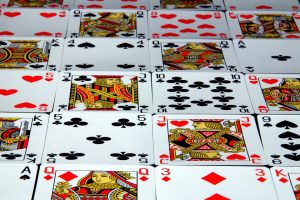 How to become a master player in poker? Let's examine it in more detail. As poker players, we all have one common goal, which is skill improvement. The definition of mastery is quite misleading because we understand it very subjectively. For a player playing at 5ct/10ct blinds, every regular who plays at $1/$2 might seem like a master, while for Phil Ivey, no player seems masterful. So, it all depends on your perspective.
How to become a master player in poker? Let's examine it in more detail. As poker players, we all have one common goal, which is skill improvement. The definition of mastery is quite misleading because we understand it very subjectively. For a player playing at 5ct/10ct blinds, every regular who plays at $1/$2 might seem like a master, while for Phil Ivey, no player seems masterful. So, it all depends on your perspective.
To make it simpler, let's agree on a certain reference point in our definition. Let's say that mastery is “the highest level of experience in a certain field.” So, we could call a performing pianist, a chess grandmaster, a professional athlete, and in poker, a consistent mid-high stakes pro, a master.
The science of mastery was excellently examined by Malcolm Gladwell in his book “Outliers,” which was largely based on the research of Swedish psychologist Anders Ericsson. According to this research, mastery is achieved with the help of environmental support and continuous efforts, not some innate genius trait. Recent studies have also revealed two main elements that help achieve mastery: 10,000 hours of deliberate practice and an experienced mentor. Now let's talk more about the first one.
10,000 hours is a somewhat intimidating number. If we take this number literally, for a player who plays poker for 5 years, playing 360 days a year, to reach 10,000 hours, they would need to play about 6 hours a day, every day. If you play poker for 8 years, the number adjusts to 3.5 hours a day. Such calculations may seem daunting, but it's important to remember that there are different levels of success—you can be at the top playing at $2/$4 blinds and average playing at $10/$20.
Moreover, recent studies have shown that the 10,000-hour rule, persistently promoted by M. Gladwell, is not so definitive—the number of hours can vary between 8,000 and 25,000 depending on the field. There is a good chance that poker requires the lower limit, as it is a relatively new game and most poker masters have been playing for less than 10 years (while the best piano masters train their whole lives).
Finally, you shouldn't take this magical number of hours you must play too seriously; just understand that you need to play a lot to reach the highest level of the game.
Haseeb Qureshi





